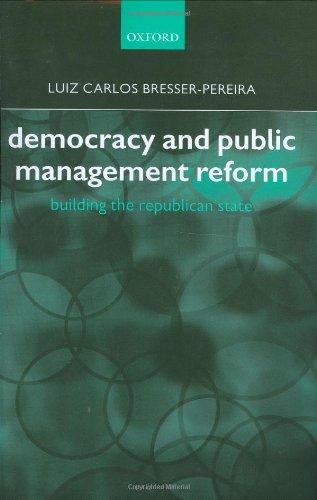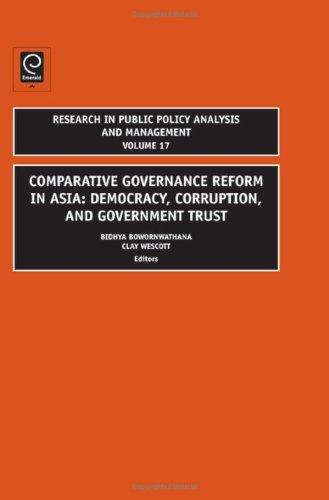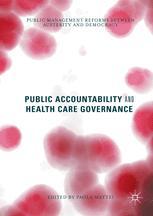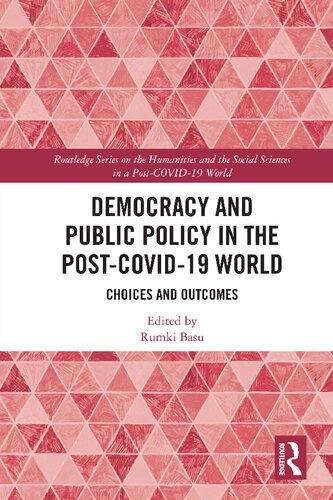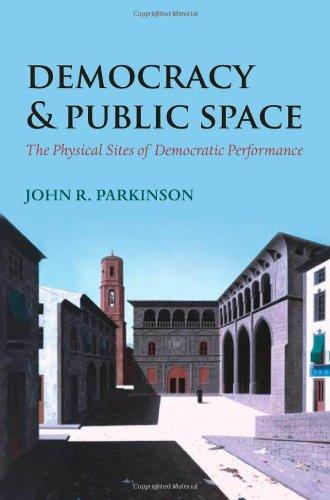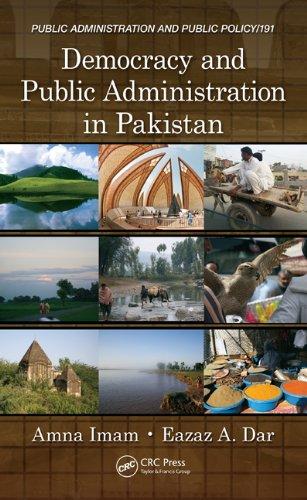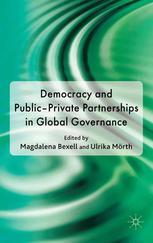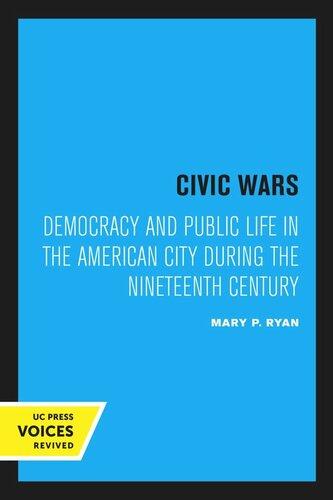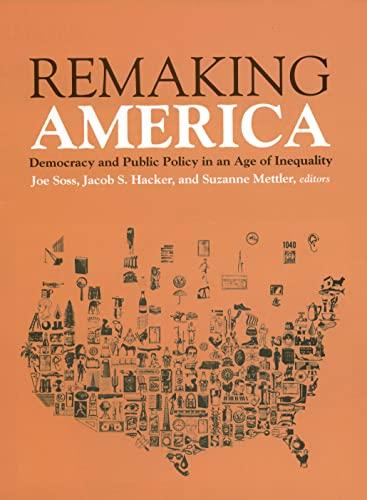I
COULD not but be much surprised, my dear friend, to receive your commands on a subject, of which You, of all men, are the greatest master. For who could so well advise the party, you speak of, or resolve the general question concerning The Uses of Foreign Travel, considered as a part of modern breeding and education, as HE, who has himself profited so much by this practice, and, in a late excellent treatise36, has given so convincing a proof of its utility?
Besides, your application to me is a little suspicious; and looks as if you wanted to draw from me a confirmation of your own sentiments, rather than a candid examination of them. For how was it possible for you not to foresee the difficulty I must be under, in debating this point with you? When have I been able to dissent from you in any question of morals or policy? and especially what chance for my doing it in this instance, when you know the bias which my own education, conducted in this way, must have left upon me?
I am therefore at a loss, as I said, to account for your fancy in making me of your council on this occasion. But, whatever your purpose might be, since you have thought fit to honour me so far, I must own your Letter of Inquiry could not possibly have found me in a fitter season.
I happened just then to amuse myself with recollecting a conversation, which, not many days before, had passed between me and a certain Philosopher of great note, on that very subject.
You know the esteem I have of this Philosopher; I mean, for such of his writings, as are most popular, and deserve to be so; such as his pieces on Government, Trade, Liberty, and Education. No man understands the world better; or reasons more clearly on those subjects, in which that world takes itself to be most of all, and is, in truth, very nearly concerned.
His Philosophy, properly so called, is not, I doubt, of so good a taste; at least, his notion of morals is too modern for my relish: I had put myself to school to other masters, and had learnt, you know, from his betters what to think of Life andManners; which they treat in a style quite out of the way of these subverters of ideal worlds37 , and architects on material principles38 .
But on this head, my dear Sir, you have heard me speak often, and may hear from me more at large on some other occasion. With exception to this one article (an important one, however), no man is more able, than Mr. LOCKE, or more privileged by his long experience, to give us Lectures on the good old chapter of Education; which many others indeed have discussed; but none with so much good sense and with so constant an eye to the use and business of the world as this writer.
The purpose of your inquiry, then, cannot, as I suppose, be any other way so well answered, as by putting into your hands a faithful account of his sentiments on the conduct and use of Travelling: especially, as you will perceive at the same time what my notions are (if that be of any importance to you) on the same subject.
If I were composing a Dialogue in the old mimetical, or poetic form, I should tell you, perhaps, the occasion that led us into this track of conversation. Nay, I should tell you what accident had brought us
together; and should even omit no circumstance of time or place, which might be proper to let you into the scene, and make you, as it were, one of us.
But these punctilios of decorum are thought too constraining, and, as such, are wisely laid aside, by the easy moderns. Nay the very notion of Dialogue, such as it was in the politest ages of antiquity, is so little comprehended in our days, that I question much, if these papers were to fall into other hands than your own, whether they would not appear in a high degree fantastic and visionary. It would never be imagined that a point of morals or philosophy could be regularly treated in what is called a conversation-piece; or that any thing so unlike the commerce of our world could have taken place between men, that had any use or knowledge of it.
This, I say, might be the opinion of men of better breeding; of those, who are acquainted with the fashion, and are themselves practised in the conversations, of the polite world. The formalists, on the other hand, would be out of patience, I can suppose, at this sceptical manner of debate, which ends in nothing; and after the waste of much breath, leaves the matter at last undecided, and just as it was taken up.
All this, it must be owned, is very true. But as it is not my intention to submit the following draught to such critics, you, who know me, will accept this recital, made in my own way, and pretty much as it passed. You may well be trusted to make your own conclusions from what is offered on either side of the argument, and will need no officious monitor to instruct you on which side the truth lies.
Not to detain you, by further preliminaries, from the entertainment (such as it is) which I have promised you; you may suppose, if you please, Mr. LOCKE and me, in company with some other of our common friends, sitting together in my library, and entering on the subject in the following manner.
LORD SHAFTESBURY.
And is not TRAVELLING then, in your opinion, one of the best of those methods, which can be taken to polish and form the manners of our liberal youth, and to fit them for the business and conversation of the world?
MR. LOCKE.
I think not. I see but little good, in proportion to the time it takes up, that can be drawn from it, under any management; but, in the way in which it commonly is and must be conducted, so long as travelis considered as a part of early education, I see nothing but mischiefs spring from it.
LORD SHAFTESBURY.
What! necessarily spring from it? And is there no way to stop their growth; or at least prevent their choking the good plants, which that soil is capable of producing?
MR. LOCKE.
This indeed I must not absolutely affirm: your Lordship’s example, I confess, stands in my way. But if your own education, which was conducted in this form, and creates a prejudice for it, be pleaded against me, I may still say, that the argument extends no further than to qualify the assertion; and that, as in other cases, the rule is general, though with some exceptions.
LORD SHAFTESBURY.
It was not my meaning to put your politeness to this proof. I would even take no advantage of the exception which you might consent
to make in the case of many other travellers, who have, doubtless, a better claim, than myself, to this indulgence. What I would gladly know of you, is, Whether, in general, Travel be not an excellent school for our ingenuous and noble youth; and whether it may not, on the whole, deserve the countenance of a philosopher, who understands the world, and has himself been formed by it?
MR. LOCKE.
Your Lordship, I think, will do well to put philosophy out of the question. There is so much to be said against Travel in that view, that the matter would clearly be determined against you. It is by other rules, and what are called the maxims of the world (which your Lordship understands too well, to join them with philosophy), that the advocate for travelling must demand to have his cause tried, if he would hope to come off, in the dispute, with any advantage.
LORD SHAFTESBURY.
Yet philosophy was not always of this mind. You know, when the best proficients in that science gave a countenance to this practice, by their own example: a good part of their life was spent in foreign countries; and they did not presume to set up for masters of wisdom, till experience and much insight into the manners of men had qualified them for that great office. Hence they became the ablest and wisest men of the whole world; and their wisdom was not in those days of the less account for the politeness, that was mixed with it.
MR. LOCKE.
Those wise men might have their reasons for this different practice. They most of them, I think, set up for Politicians and Legislators, as
well as Philosophers; and in that infancy of arts and commerce, when distant nations had small intercourse with each other, it might be of real advantage to them, at least it might serve their reputation with the people, to spend some years in voyages to such countries as were in the highest fame for their wisdom or good government.
Besides, the Sages of those times made a wondrous mystery of their wisdom: a sure sign, perhaps, that they were not over-stocked with it. It was confined to certain schools and fraternities; or was locked up still more closely in the breasts of particular persons. Knowledge was not then diffused in books and general conversation, as amongst us; but was to be obtained by frequenting the academies or houses of those privileged men, who, by a thousand ambitious arts, had drawn to themselves the applause and veneration of the rest of the world.
All this might be said in favour of your Lordship’s old Sages. Yet one of them, who deserved that name the best, was no great Traveller. I remember to have read, that SOCRATES had never stirred out of Athens; and that, when his admirers would sometimes ask him why he affected this singularity, he was used to say, That Stones and Trees didnotedify him: intimating, I suppose, that the sight of fine towns and fine countries, which the voyagers of those days, as of ours, made a matter of much vanity, was the principal fruit they had reaped to themselves from their fashionable labours.
However, allowing your lordship to make the most of these respectable authorities for the use of travelling, it must still be remembered, that they are wide of our present purpose. They were Sages, that travelled: and we are now inquiring, whether this be the way for young men to become Sages. PLATO might pick up more learning in his Voyages, than any body since has been able to understand; and yet a youth of eighteen be little the wiser for staring away two or three years in mysterious Egypt.
LORD SHAFTESBURY.
Why, truly, if he carried nothing abroad with him but the use of his eye-sight, I should be much of your mind with regard to the improvements he might be expected to bring back with him. But let him hear and observe a little, as well as see; and methinks a youth of eighteen might pick up something of value, though he should not return laden with the mysteries of Egypt.
As to the gaiety on the ancient Sages, I could be much entertained with it, if I did not recollect that the more enlightened moderns have, also, been of their mind in this instance. To say nothing of other countries, which yet have risen in reputation for knowledge and civility in proportion to their acquaintance with the neighbouring nations, surely it must be allowed of our own, that all its valuable acquisitions in both have been forwarded at least, if not occasioned, by this reasonable practice. We are now, without doubt, arrived at the summit of politeness, and may subsist at length upon our own proper stock. But was this always the case? And must it not be acknowledged, that the brightest periods of our story are those, in which our noble youth were fashioned in the school of foreign Travel? You will hardly pretend that the ornaments of the second CHARLES’ and ELIZABETH’S courts were cast in the coarse mould of this home-breeding.
MR. LOCKE.
I shall perhaps carry my pretensions still further, and affirm it had been much better if they had been so.
I know what is to be said for the voyagers in ELIZABETH’S time. We were just then emerging from ignorance and barbarity. Learning and the Arts were but then getting up; and were best acquired, we will say, in foreign schools, and the commerce of other nations, which might have the start of us in such improvements. The state of Europeat that time was not unlike what I observed of the old world,
when knowledge was in few hands, and the exclusive property, as it were, of particular persons. So that it was to be travelled for, and fetched home, by such as would have it. Italy, in particular, was in those days, as it had long been, the theatre of politeness, and without doubt could furnish us with very much of the learning we most wanted.
This then was the fashionable route of our curious and courtly youth: and many accomplished persons, I can readily admit, were to be found in the number of our ItalianTravellers. Yet, methinks, they had done better to stay at home, and at least import the arts of Italy, if they were necessary to them, in sager heads than their own.
I say this, because it is no secret that the civility, we thus acquired, was dearly paid for; and that irreligion, and even Atheism, were packed up among their choicest gleanings, and shewn about, at their return, as curiosities, which could not but very much enhance the consideration of those who had been to gather them beyond the mountains39 .
LORD SHAFTESBURY.
Or, shall we say, that this impiety of the time was only employed to correct its superstition? And that the philosophic spirits of that age trafficked in these wares, as thinking them a proper antidote to such as another set of missionaries largely dealt in: I mean, the agnus Dei’s,holybeads,andconsecratedmedals?
MR. LOCKE.
Take it which way you will, the conclusion, I believe, will scarcely be much in favour of our Italian Travellers.—As to the worthies of CHARLES’S court, your Lordship, without doubt, is disposed to divert yourself with them. For, if they brought any thing with them from France, besides the dress of its follies and vices (excepting always
the sacred babble of their language), it is a secret which it has not been my fortune to be apprized of.
LORD SHAFTESBURY.
And so, because Travelling may, by accident, be attended with some ill effects, you roundly determine against the thing itself; as if the national improvement in arts and civility, which unquestionably arose from it, were to go for nothing!
MR. LOCKE.
I would have it go for no more than it is honestly worth; which surely is something less than the price paid for it, our principles and our morals. And I doubt the truth is, that this degeneracy in both was the usual acquisition of our travelled youth, and the improvement, your Lordship speaks of, only the accidental benefit.
LORD SHAFTESBURY.
Without doubt, there is no extending our acquaintance with the world, but we run the risk of catching its vices, as well as virtues. Yet, push this conclusion as far as it will go, and you shut up mankind in absolute and incurable barbarism. Such is the unhappy condition of human nature, that in striving to cultivate its powers, you furnish the opportunities, at least, of its corruption. Yet to leave it in that sordid state, for fear of those abuses, is methinks but acting with the weak apprehension of fond mothers; who deny their children the liberty of stirring from the fire-side, for fear of the dirt or damp air, which, in their field-exercises, may chance to incommode them.
MR. LOCKE.
The allusion would be apt, if the health of the mind, as of the body, depended on the use of such liberty; or if it were true, that one could as little help breathing the air of vice, as that of the heavens. But, though I have heard much of the dangers to which Virtue is exposed in this bad world, I have never understood that Vice is its proper element.
LORD SHAFTESBURY.
Yet methinks, Sir, it will be hard to keep clear of it in any part of the world, that I am acquainted with: unless perhaps you take this happy Island of ours to be as free from Vice, as a Neighbouring one, they say, is from Venom.
MR. LOCKE.
There are, however, degrees in Vice, as well as varieties of it; and I cannot think it necessary for us to be greater proficients than we are, or to import new species of it; by rambling into countries where it may chance to rage with greater virulence, or where such modes of it, at least, prevail, as are luckily unknown to us. And such, I doubt, were the fruits of our Italianand Frenchtravels.
But allowing that Vice were of every clime, the same every where, and equally malignant, I should still imagine our youth to be safer from the infection at home, under the eye and wing of their own parents or families, than wandering at large in foreign countries, with as little care of others, as prudence of their own, to guard them from this danger.
LORD SHAFTESBURY.
Yes, if they were turned loose into this wicked world, and left to their own devices. But, what if some sage Philosopher
MR. LOCKE.
Some God, you would say, in the shape of a Tutor; for a mere mortal Guide of that stamp is not easily met with. Or, if He were, his wisdom, I doubt, would hardly give him the authority, he stands in need of, for the discharge of his function. But I take your Lordship’s raillery, and could say in my turn, But what if some inquisitive and well-disposed young Nobleman—
After all, we may let these two voyagers, so well matched and fitted to each other, proceed on their journey. The question at present is of no such rarities; but of raw, ignorant, ungovernable boys, on the one hand, and of shallow, servile, and interested governors, on the other. And if any good can arise from such worthies as these, sauntering within the circle of the grand Tour, the magic of travelling can callup more than I have ever yet seen.
LORD SHAFTESBURY.
It may be true, perhaps, that the advantages of travelling are not so great, or so general, as is sometimes pretended. Yet, on the other hand, that there are advantages, and considerable ones too, can hardly be denied. And to come at length more closely to the point (for what has hitherto passed is but a sort of prelude to the main argument) let me have leave to state those advantages clearly and distinctly to you, and then to request your own proper sense (I mean as a man of the world, according to the advice you just now gave me, and not as a Philosopher) of this practice.
MR. LOCKE.
Is this fair dealing in your Lordship? I supposed that by starting this question you had meant only, as on other occasions, to engage an old man in a little conversation; whereas your purpose, I now find, is to make a formal debate of it.
LORD SHAFTESBURY.
Not a formal debate, but a free conference; for which we seem to have leisure enough; and the subject is, besides, of real importance. I may presume to answer for our friends here, that they will not be displeased to assist at it.
I am aware, as you said, that the practice may be sometimes inconvenient, as it is commonly managed, on the side of morals; and I would not be thought to have benefited so little by yours, and the instructions of my other masters, as not to lay the greatest stress on that consideration.
But, after all, these inconveniences may be pretty well avoided, by the choice of an honest and able governor. Such an one it will not be impossible to find, if the persons concerned be in earnest to look out for him: I do not say in Cells, for a Pedant without manners; and still less, you will say, in Camps, for a mannered man, without principles or letters; but, in the world at large, for some learned and wellaccomplished person, who, yet, may not disdain to be engaged in this noblest office of conducting a young gentleman’s education.
Under such a Governor, as this, the danger, to which a young man’s morals may be exposed by early travel, will be tolerably guarded against; and to make amends for the hazard he runs in this respect, I see, on the other hand, so many reasons for breeding young men in this way, so many benefits arising from it at all times, and such peculiar inducements with regard to the present state of our own country, that, I think, we shall hardly be of two minds, when you have attended to them.
MR. LOCKE.
We shall see that in due time. For the present, the serious air, you assume, so different from your wonted manner, secures my attention.
LORD SHAFTESBURY.
I cannot tell what may be the opinion of others; but ignorance and barbarity seem to me to be the parents of the most and the worst vices. Conceit, pride, bigotry, insolence, ferocity, cruelty, are the native product of the human mind, kept uncultivated. Self-love, which makes so predominant a part in the constitution of man, that some sufferers by its excesses have mistaken it for the sole spring of all his actions, naturally engenders these vices, when no care is taken to controul its operations by another principle.
On this account, wise men have had recourse to various expedients; such as the provision of Laws; the culture of Arts and Letters; and, in general, all that discipline which comes under the notion of early tutorage and education. But none of these has been found so effectual to the end in view, or is so immediately directed to the purpose of enlarging the mind, and curing it, at once, of all its obstinate and malignant prejudices, as a knowledge of the world acquired in the way of society, and general conversation.
To say nothing of the solitary sequestered life, which all men agree to term Savage, look only on those smaller knots and fraternities of men, which meet together in our provincial towns and cities, and, without any larger commerce, are confined within the narrow enclosure of their own walls or districts. In as much as this condition is more social than the other, it is, without doubt, more eligible. Yet see how many weak views are entertained by these separate clans, how many fond conceits, and over-weening fancies! The world seems to them shrunk up into their own private circle; just as the heavens appear to children to be contained within the limits of their own horizon.
Extend this prospect of mankind to still greater combinations, to states, kingdoms, nations, and what we call a whole people. By this freer intercourse, indeed, their thoughts take a larger range, and their minds open to more generous and manly conceptions. Yet their
native barbarism sticks close to them, and requires to be loosened and worn off by a more social habit, by the experience of a still wider and more thorough communication. Tribes of men, although very numerous, yet, if shut up within one territory, and held closely together under the influence of the same political constitution, easily assimilate, as it were; run into the same common sentiments and opinions; and presently take, in the whole extent of their community, one uniform prevailing character.
Hence the necessity of their still looking beyond their own, into other combinations and societies; that so, as the mind strengthens by this exercise, they may be enabled to shake off their local, as we may say, and territorial prejudices.
Those other societies may not be without their defects, which it will be equally proper to keep clear of. But, by this free prospect of the differences subsisting between different nations, each naturally gets quit of his own peculiar and characteristic vices; and those of others, presenting themselves to our unbiassed observation, are not so readily entertained, or do not cling so fast to us, as what have grown up with us, and, by long unquestioned use, are become, as we well express it, a secondnature.
Thus, by this near approach and attrition, as it were, of each other, our rude parts give way; our rough corners are insensibly worn off; and we are polished by degrees into a general and universal humanity.
EXTERNI nequidvaleatperlævemorari,
to use the poet’s words, though with some small difference, I believe in their application.
What says my friend to these principles? are they just and reasonable? or, am I going to build on precarious and insecure
foundations?
MR. LOCKE.
Whatever defect there may be in this foundation, your Lordship, as a wise architect, is for sparing no cost or pains in providing for its stability. Yet, methinks, you go deeper for it, than you need. At least, I did not expect your defence of Travelling would require you to make these profound researches into human nature.
LORD SHAFTESBURY.
I take your meaning. These researches, you would say, are so little profound, that I might have spared myself the trouble of making them at all, at least in conversation with a philosopher. Be that as it will; provided the principles themselves, I am contending for, be well founded. For the conclusion necessarily follows, “That therefore FOREIGN TRAVEL is, of all others, the most important and essential part of Education.”
The youth of the most accomplished people in Europe would have much to correct in themselves, and something, perhaps, to learn, in their voyages into the neighbouring nations; however inferior to their own, in the general state of knowledge and politeness. What then must be the case of our English youth, confined in this remote corner among themselves, and indulged in their own rustic and licentious habits?
Our country has never been famous for the civility of its inhabitants. We have, rather, been stigmatized in all ages, and are still considered by the rest of Europe, as proud, churlish, and unsocial. The very circumstance of our Island-situation seems to expose us to the just reproach of inhospitality. And if, with this disadvantage, we should cherish, and not correct, those vices which so naturally spring from it, what less could we expect than to be distinguished by such
names, as our ill-manners would well deserve, though our pride might suffer from the application of them?
It seems then to be an inevitable consequence of what has been said, that we of this country have a more than ordinary occasion for the benefits of foreign travel. And the reason of the thing shews, they cannot be obtained too soon. Young minds are the fittest to take the ply of civility and good manners. The task is less easy, and the success more uncertain, when we enter upon this business late in life; when intractable humours have gathered strength, and the unsocial manner is become habitual to us. Whatever may be objected to the incapacity of this age in other respects, youth is out of question the time for acquiring right propensities and virtuous habits.
MR. LOCKE.
Your Lordship has so many good words at command upon all occasions, that one cannot but be entertained, at least, with your rhetoric, if not convinced by it. But my present concern is, to have a clear conception of your argument, which in plain terms, as I apprehend it, stands thus; “That every nation has many vices and follies to correct in itself; that this is perhaps more especially the case of our own; and that early Travelis the only, at least the most proper, cure for them.”
LORD SHAFTESBURY.
That, Sir, is my meaning; and, though expressed in more words than may be necessary, it is surely not coloured by any rhetorical exaggerations. But you must allow me to proceed in my own way, and enforce the general argument, I have delivered, by applying it to the particular exigencies and necessities of our Englishyouth.
You, who have been abroad in the world, and have so just a knowledge of other states and countries, tell me, if there can be any thing more ridiculous than the idiot PREJUDICES of our home-bred gentlemen; which shew themselves, whenever their own dear Island comes, in any respect, to be the topic of conversation. What wondrous conceits of their own prowess, wisdom, nay of their manners and politeness! With what disdain is a foreigner mentioned by them, and with what apparent signs of aversion is his very person treated! They scarcely give you leave to suppose that any virtuous quality can thrive out of their own air, or that good sense can be expressed in any foreign language. Nay, their foolish prepossession extends to their very soil and climate. Such warm patriots are they, such furious lovers of their country, that they will have it to be the theatre of all convenience, delight, and beauty.
“To hear their discourse among themselves, one would imagine that the finest lands near the Euphrates, the Babylonian or Persian Paradises, the rich plains of Egypt, the Græcian Tempe, the Roman Campania, Lombardy, Provence, the Spanish Andalusia, or the most delicious tracts in the Eastern or Western Indies, were contemptible countries in respect of what they dote upon under the name of Old England40 . ”
Now, if it were only for the sake of truth and decency, if it were but to avoid the ridicule to which these palpable absurdities and childish fancies expose them, one cannot but wish that our countrymen would open their eyes, and extend their prospect beyond their own foggy air, and dirty acres.
But this is the least inconvenience of their home breeding. How many low HABITS and sordid practices grow upon our youth of fortune, and even of quality, from the influence of their family, or at best provincial, education!
They retain so much of their Saxon or Norman character, that their noblest passion is that of the Chace; unless a horse-race may, haply,
Welcome to our website – the perfect destination for book lovers and knowledge seekers. We believe that every book holds a new world, offering opportunities for learning, discovery, and personal growth. That’s why we are dedicated to bringing you a diverse collection of books, ranging from classic literature and specialized publications to self-development guides and children's books.
More than just a book-buying platform, we strive to be a bridge connecting you with timeless cultural and intellectual values. With an elegant, user-friendly interface and a smart search system, you can quickly find the books that best suit your interests. Additionally, our special promotions and home delivery services help you save time and fully enjoy the joy of reading.
Join us on a journey of knowledge exploration, passion nurturing, and personal growth every day!
